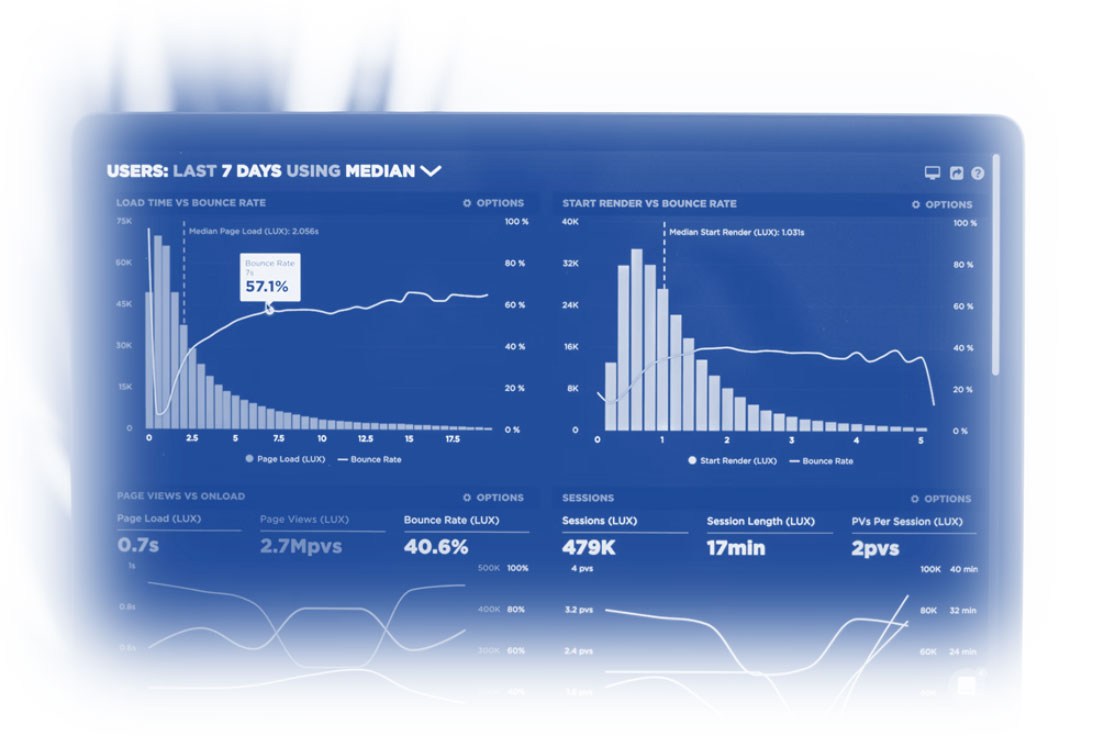Social Media PPC Audit 101: What to Measure and Monitor

Social Media PPC Ads Audit 101: What to Measure, Monitor and How To Use The Output To Boost Your Brands Sales
Welcome to our latest blog series on Social Media PPC Ad Audit 101. We’ll explore measuring and monitoring the effectiveness of paid advertising campaigns on popular social media platforms. If you want better results from your social ads simply book your free social ads audit with us today, we will help you get better without the headache of trying to do it yourself!
In today’s digital landscape, businesses are using pay-per-click (PPC) advertising to boost online visibility, attract target audiences, and drive conversions. Amidst evolving algorithms and growing competition, grasp the metrics that truly matter to optimise ad performance.
Join us as we explore Social Media PPC Auditing and uncover the key factors, best practices, and essential tools to conduct a comprehensive PPC ad audit. Ensure your social media campaigns reach their full potential and yield impressive returns on advertising investment.
Social media advertising has become an integral part of most organisations’ marketing strategies. Companies should carefully review their ad spend on platforms like Facebook and LinkedIn to effectively utilise their budgets.
A Social Media PPC Audit assesses a company’s Paid Social Media Ads efforts, covering setup, targeting, creative, and more. The goal is to identify what’s working well, what needs improvement, and how to optimise social ad performance going forward. While numerous areas can be analysed, every audit should primarily focus on measuring and monitoring key metrics.
This article will provide an overview of social media ad auditing best practices, including:
- Key performance indicators to track
- Tools to use for monitoring and reporting
- How to analyse and interpret social ad data
- Tips for acting on audit findings to boost results
Regularly auditing social media advertising insights helps brands gain insights to refine strategies and maximise ROI on social media.
Learn how much Social Media Ads Audits Cost
Expect to pay at least £500 for a basic social media audit examining your core platforms and followers.
A more robust multi-channel audit will cost closer to £2,500-£5,000+ on average.
In today’s rapidly changing digital landscape, adaptability is key to success.
The cost of a social media audit contributes to your business’s ability to adapt to new platforms, algorithm changes, and user behaviours, ensuring you stay relevant and effective.
Check out How Much is a Social Media Audit for typical pricing and a guide on what to look for.
Critical KPIs and Metrics to Measure (Social Media PPC Audit)
When conducting a social media ad audit, there are a few pivotal metrics to focus on that all PPC experts would naturally look at:
-
Reach and Impressions:
These metrics help you understand how many users have seen your social ads and how often they’re displayed. A higher reach and impressions count can indicate broader visibility among your target audience. To avoid wasteful spending, maintain a balance with metrics such as engagement and conversions. Don’t target users who may not be genuinely interested. Comparing reach and impressions over time helps identify trends and optimisation opportunities.
-
Clicks and Clickthrough Rate (CTR):
Clicks measure user interactions with your ads, while CTR represents the percentage of ad impressions resulting in clicks. A high CTR suggests that your ad messaging is resonating with the audience and generating interest. Nevertheless, it’s crucial to remember that clicks don’t guarantee conversions. Analysing click-to-action completion rates will give you a more accurate picture of the actual return on investment. A low CTR may indicate issues such as poor targeting or irrelevant creatives that need addressing.
-
Engagement Rate:
Engagement rate shows the percentage of users who interacted with your ads through actions like clicks, comments, shares, and more. A strong engagement rate indicates that your ads are successfully connecting with the audience and capturing their attention. However, similar to CTR, high engagement doesn’t necessarily translate directly into conversions. It does, however, provide valuable insights into the effectiveness of your messaging. Refine your messaging to leverage this interest and convert it into sales.
-
Conversion Rates:
For many brands, a crucial metric is the return on investment (ROI) from social media ads. Conversion metrics, such as cost per lead or purchase, are vital in determining the success of a campaign. This data allows you to identify which creatives, audiences, and strategies are most effective at driving conversions and revenue. By tracking ROI over time, you can gauge the impact of optimisations and improvements in performance. Low conversion rates signal the need to re-evaluate targeting, offers, and creatives to boost the campaign’s effectiveness.
In short, a comprehensive social media PPC ad audit entails analysing essential KPIs. It will dig into the metrics to gain insights on the reach, engagement, and effectiveness of your ad campaigns. To maximise social media advertising results, businesses must understand and optimise these aspects.
Tools for Monitoring and Reporting
-
Facebook Ads Manager:
Facebook Ads Manager is a vital reporting tool for monitoring ad campaigns on Facebook, Instagram, and Audience Network. It provides in-depth insights into ad performance, audience engagement, and conversion metrics. Advertisers can leverage the user-friendly interface to access vital data and make informed decisions, optimising their Facebook campaigns effectively.
-
Google Analytics:
Widely used for tracking website activity, Google Analytics also plays a crucial role in monitoring social media ad performance. It enables businesses to measure website clicks, actions, and conversions generated from social media campaigns. Integrating ad accounts provides detailed channel analysis, helping advertisers evaluate social media’s impact on website traffic and conversions. Additionally, the new GA4 (Google Analytics replacement) offers many free reports, such as Google Ads Benchmarks, which allow for cross-platform comparison of advertising efforts.
-
ClickMeter:
ClickMeter is a valuable tool for tracking clicks and conversions across various social media platforms. It offers detailed insights into user behaviour and the effectiveness of UTM campaign tags. This information helps advertisers understand which social media channels are driving the most traffic and conversions. ClickMeter’s cross-channel tracking helps businesses identify top-performing platforms and make data-driven decisions to optimise ad spend.
-
Third-Party Tools (e.g., Sprout Social and Rival IQ):
These third-party tools play a vital role in centralising reporting across multiple social media platforms. Sprout Social and Rival IQ provide advertisers with comprehensive dashboards to monitor and compare social media performance. They often offer benchmarking data, allowing businesses to assess how their performance stacks up against industry competitors. Though paid versions of these tools offer advanced analytics, they are a valuable investment for businesses aiming to streamline reporting.
-
Agency Partners and Social Media Specialists:
Many agencies and social media specialists offer dashboard reporting services to their clients. These custom dashboards consolidate data from various sources and present it in an easily digestible format. PPC agency partners offer clients valuable custom insights, enabling data-driven decisions and understanding the impact of social media advertising. These customised reporting solutions are especially valuable for businesses with complex advertising strategies and specific reporting needs.
In conclusion, the availability of these tools empowers businesses to track, analyse, and optimise their social media advertising campaigns efficiently. From platform-specific tools like Facebook Ads Manager to cross-channel analytics provided by GA4 and third-party options there is plenty of choice. Brands can choose the tools that best suit their needs and gain valuable insights into their ad performance. Agency partners and social media auditing specialists provide custom reporting solutions to enhance advertisers’ understanding of their social media campaigns.
Analysing Data and Identifying Optimisation Opportunities a Key Aspect of All Social Media PPC Audits
After collecting metrics from ad accounts, the real work begins: interpreting the data and identifying improvement opportunities. To make sense of social advertising analytics, consider the following best practices:
- Compare Metrics Over Time: Avoid focusing solely on isolated statistics. Instead, analyse metrics over weeks and months to identify trends. A steady increase or decrease in specific metrics indicates the success or failure of new strategies implemented. This long-term view helps you understand the impact of your efforts and make data-driven decisions.
- Segment Data: Break down metrics based on various factors such as audience demographics, ad placement, creative elements, and more. Segment data to identify key elements that drive strong results and areas to improve. This level of granularity allows for targeted optimisation efforts.
- Benchmark Against Competitors: Many analytical tools provide benchmarking features that allow you to compare your performance against that of your competitors. Contextualising results helps you assess your market position and identify areas of competitive advantage or improvement.
- Set KPIs: Establish specific Key Performance Indicators (KPIs) and targets aligned with your advertising goals. These KPIs act as measurable milestones and guides for evaluating campaign success. By focusing your analysis on the most relevant metrics, you can better understand the overall effectiveness of your campaigns.
- Identify Outliers: Look for metrics that deviate significantly from the norm. Outliers can reveal critical areas that require attention and improvement. Unusually high engagement rate or surprisingly low conversion rate? These anomalies provide valuable insights into areas needing refinement.
Consistently Analyse Social Media PPC Advertising Data and Trends by Performing Audits
- Optimise Underperformers: Metrics consistently falling below expectations demand attention. Diagnose the reasons for underperformance in PPC agencies, such as ineffective targeting, poor creatives, or inadequate messaging. Test new approaches, including revised targeting, compelling creatives, or revised ad copy to improve these underperforming aspects.
- Double Down on What Works: Identify high-performing segments and strategies that drive exceptional results. Shift your budget and efforts towards these successful areas to maximise returns. Continuously build upon your strengths to further enhance the impact of your campaigns.
- A/B Test Social Ad Creatives and Content: Utilise tools like Google Optimise to conduct A/B tests on social ad creatives and content. Experiment with different visuals, ad copy, and messaging to determine what resonates most with your target audience. This iterative approach helps refine your campaigns and enhance overall performance.
- Follow Trends: Keep a close eye on any sudden spikes, dips, or seasonal shifts in the data. Adjust your campaigns accordingly to capitalise on emerging trends or counteract potential downturns. Staying agile in response to changing trends is crucial for maintaining campaign effectiveness.
- Check Campaign Settings: Regularly review and reconfirm your campaign settings, including Social Media Ad Targeting parameters, ad placements, bidding rules, budgets, and other key factors. Ensure that these settings align with your advertising objectives and make necessary tweaks to optimise your campaigns continually.
Analysing your Social Media PPC Audit data and trends provides valuable insights to optimise campaigns and strategies for better results. Data-driven decisions and proactive campaign optimisation are crucial for staying competitive in the ever-changing world of social media ads.
Acting on Audit Findings
A social media ad audit concludes by using insights to enhance performance through actionable steps. To effectively implement the findings, consider the following tips:
- Share Discoveries: Present the key takeaways and recommendations from the audit to relevant stakeholders. Seek their buy-in and support for proposed changes and optimisation efforts. Collaboration and support from all involved parties are crucial for successful implementation.
- Set Optimisation Priorities: Prioritise the identified initiatives based on their potential impact and the resources required for implementation. Ranking actions helps prioritise critical areas, allowing you to create a timeline for implementing changes.
- Refine Targeting: Use the insights from the audit to fine-tune your targeting parameters. To improve ad Social Media Advertising Performance, consider modifying interests, behaviours, demographics, ad placement, and device targeting.
- Develop New Creatives: Based on the top-performing content identified in the audit, create fresh ad copies, images, videos, and formats. Utilise the data-driven insights to inform the development of compelling and engaging creatives that resonate with your target audience.
- Alter Campaigns and Funnels: Make strategic adjustments to your campaigns, including modifying campaign objectives, restructuring ad sets, and adjusting bidding strategies. Additionally, reconfigure your conversion funnels to optimise the user journey and maximise conversions.
Progressive Improvements in Your Social Media Marketing Over Time Will Yield You Great Results
- Shift Budgets: Allocate budgets based on the performance of various segments and platforms. Increase funding for well-performing segments and platforms that yield significant returns. Conversely, reduce budgets for consistently underperforming areas.
- Revise Overall Strategy: The audit findings may indicate the need for higher-level changes to your Facebook Ad Strategy. This could include revising messaging, refining audience segments, exploring new platforms, or adopting different ad formats.
- Test Aggressively: Leverage the split testing capabilities offered by social media platforms to experiment with new variables and identify optimal setups. A/B testing allows you to understand what resonates best with your audience and fine-tune your campaigns accordingly.
- Monitor Regularly: Continuously track the performance metrics of your social media campaigns to gauge the impact of the changes you’ve implemented. Regular monitoring provides real-time feedback and allows you to make data-driven adjustments as needed.
By transforming audit insights into strategic actions, you’ll see progressive improvements in social media ad results over time. The iterative process guarantees dynamic and adaptive campaigns, boosting effectiveness and achieving advertising goals.
Keys to Successful Social Media PPC Audit
Performing regular audits of your social media advertising offers a significant opportunity to refine your advertising strategy and boost overall performance. To make the most of these audits, brands should focus on the following key best practices:
- Audit Frequently: Conduct social media ad audits at regular intervals, ideally on a quarterly or monthly basis. Regular audits help identify trends, performance changes, and optimise campaigns for improved results.
- Take a Comprehensive View: During the audit, examine all aspects of your social media advertising efforts, from targeting and audience segmentation to creative elements and messaging. Understanding the big picture helps you identify strengths and weaknesses across your entire advertising ecosystem.
- Leverage Reporting Tools: Utilise reporting tools and analytics platforms to automate data collection and efficiently gather key metrics in one centralised place. This streamlines the auditing process and provides a comprehensive overview of your campaign performance.
- Focus on Critical Metrics: Concentrate on the metrics that align directly with your campaign goals and Key Performance Indicators (KPIs). By focusing on the most relevant benchmarks, you can effectively gauge the success of your advertising efforts.
- Compare Over Time: Measure your current performance against historical data to understand the impact of changes and optimisations made over time. Tracking trends and progress ensures that you are continuously moving towards better outcomes.
Turn Insights From Your Social Media PPC Audit into Actions
- Segment Data: Drill down into the data by platform, audience segments, individual campaigns, and other relevant factors. Segmenting data allows you to identify which specific elements are working well and which areas require improvement.
- Align to Business Objectives: Conduct the ad audit with a clear connection to your business objectives, targets, and benchmarks tied directly to revenue and growth goals. Aligning the audit with your business goals ensures that social media advertising contributes meaningfully to your success.
- Turn Insights into Actions: The real value of the ad audit lies in turning the insights gained into actionable strategies. Use the findings from the audit to fuel ongoing optimisation and innovation in your social media campaigns.
- Continuously Improve: Treat social media ad auditing as an integral and continuous part of your advertising process, rather than a one-off exercise. Regular auditing and optimisation ensure that your campaigns stay relevant and effective in an ever-changing digital landscape.
Book Your Free Social Media PPC Audit With Us Today
Follow this guide for Social Media PPC Audits to maximise your social advertising return on investment (ROI) and connect with your target audience. Effective audits, combined with continuous optimisation, lead to sustained success in achieving advertising goals and fostering strong customer relationships. Additionally, if you’d like to learn more about Google Ads vs. social media advertising, you’ve come to the right place.
Regular social media ad auditing provides the insights brands need to refine their strategies and boost performance over time. Track key metrics, diagnose problem areas, and capitalise on strengths to improve returns from social ad investments.
Effective auditing, analysis, and optimisation of social advertising yield dividends across brand awareness, lead generation, and sales goals. As digital marketing budgets rise, frequent audits and leveraging insights become crucial in mastering your social approach. Keep the improvement cycle going with ongoing testing and innovation. With the right analytics-driven mindset, your next social home run is just one audit away.
Author
Search Blog
Free PPC Audit
Subscribe to our Newsletter
The Voices of Our Success: Your Words, Our Pride
Don't just take our word for it. With over 100+ five-star reviews, we let our work-and our satisfied clients-speak for us.
"We have been working with PPC Geeks for around 6 months and have found Mark and the team to be very impressive. Having worked with a few companies in this and similar sectors, I rate PPC Geeks as the strongest I have come across. They have taken time to understand our business, our market and competitors and supported us to devise a strategy to generate business. I value the expertise Mark and his team provide and trust them to make the best recommendations for the long-term."
~ Just Go, Alasdair Anderson





